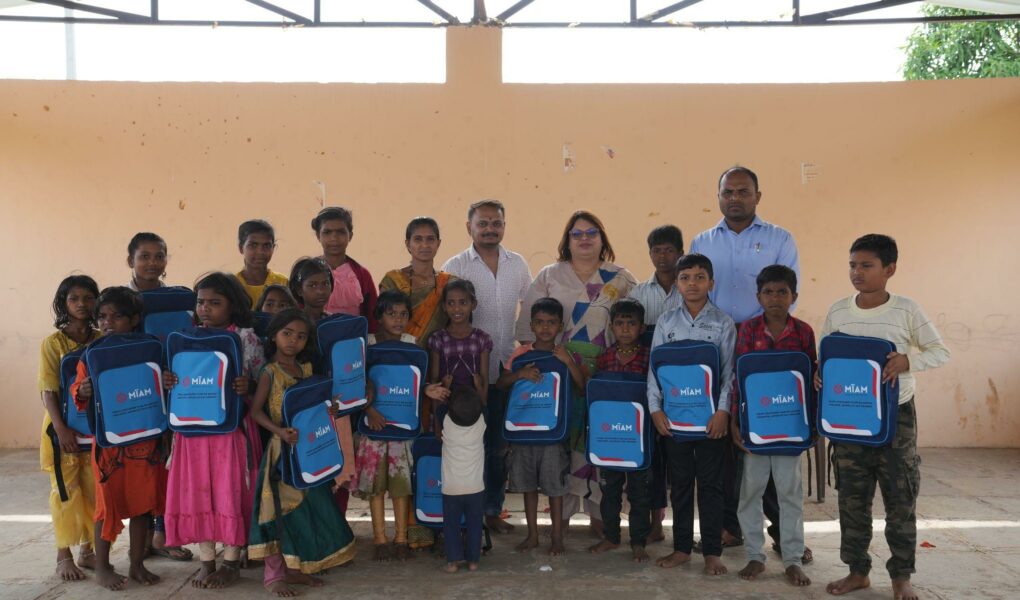In the heart of Nashik district in Maharashtra lies a village called Waghera, where the Adivasi community resides, grappling with challenges that hinder their access to quality education and a better future. However, amidst these hardships, a ray of hope shines brightly in the form of Nitu Joshi, the founder of Miam Charitable Trust, who is dedicated to bringing a positive change in the lives of these marginalized communities.
Nitu Joshi’s journey began with a simple yet powerful mission – to travel to the Adivasi areas herself and gain a deeper understanding of the issues plaguing the community. Waghera, located 35 kilometers away from Nasik city, became the focal point of her efforts, where she witnessed firsthand the struggles faced by the residents, especially the children.
Education, being the cornerstone of a brighter tomorrow, stood out as a pivotal area that required immediate attention. In Waghera, the educational infrastructure was lacking, with children having access only till the 5th grade through the aanganwadi system. Understanding the importance of education in breaking the cycle of poverty and exploitation, Nitu Joshi and the Miam Charitable Trust took a step forward to make a difference.
One of the significant initiatives undertaken by the trust was the donation of school bags to the children in Waghera. This seemingly simple gesture had a profound impact on the lives of the youngsters, who were overjoyed to receive these essential supplies. For many of them, it was a symbol of hope, a reminder that someone cared about their well-being and believed in their potential.
Nitu Joshi firmly believes that when children are equipped with the tools for learning, they are more likely to engage in academics and strive for a better future. By providing school bags, the trust aimed to instill a sense of value and pride in education among the young minds, steering them away from the perilous path of child labor that often awaits those with limited opportunities.
Among the faces that brightened up with the arrival of the school bags were those of Mr. Ganpat Kalubai Bendkoli and Bhushan Gaikwad, two young boys whose dreams now found wings to soar higher. These children, like many others in Waghera, represent the untapped potential and resilience of the Adivasi community, waiting to be nurtured and supported.
The efforts of Nitu Joshi and the Miam Charitable Trust are not just limited to providing aid but extend to fostering a sustainable change in the community. Through various programs and interventions, they aim to empower the Adivasi population, especially the youth, by equipping them with the necessary skills and resources to create a better future for themselves and their families.
Education is just the beginning of this transformative journey, as Nitu Joshi envisions a holistic approach towards community development that addresses issues of healthcare, livelihood, and overall well-being. By engaging with the locals, understanding their needs, and involving them in the decision-making process, the trust seeks to create a sense of ownership and agency among the Adivasi communities.
In a world where disparities continue to widen, Nitu Joshi’s dedication and compassion stand as a beacon of hope, illuminating the path towards a more inclusive and equitable society. Through her relentless efforts and unwavering commitment, she serves as an inspiration for others to step forward and make a difference in the lives of those in need.
As Nitu Joshi continues her mission to uplift the Adivasi communities, one school bag at a time, she reminds us of the power of empathy, kindness, and collective action in bringing about positive change. The ripple effect of her work extends far beyond the borders of Waghera, touching hearts and inspiring minds to join hands in creating a better tomorrow for all.
In conclusion, Nitu Joshi, Mr. Ganpat Kalubai Bendkoli, Bhushan Gaikwad and the Miam Charitable Trust exemplify the true essence of philanthropy and social responsibility, showing us that a small act of kindness can ignite a transformational journey. By standing up for the marginalized and vulnerable, they embody the spirit of compassion and solidarity that is needed now more than ever. As we look towards a brighter future, let us remember their story and strive to be the change we wish to see in the world.




